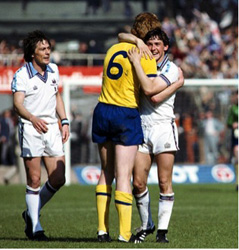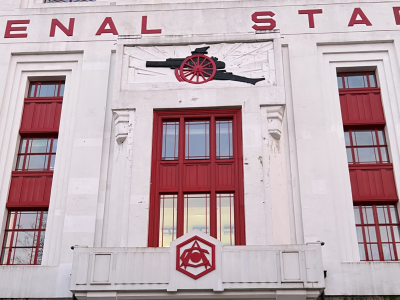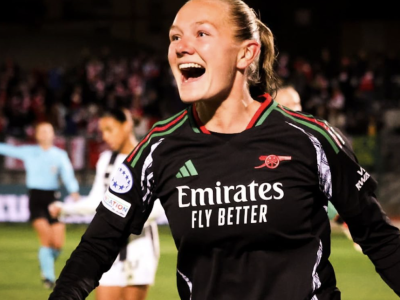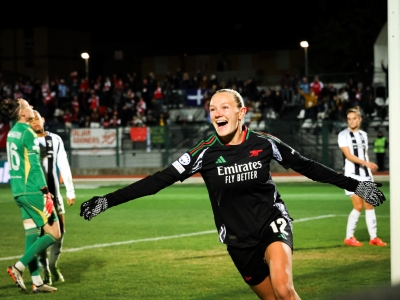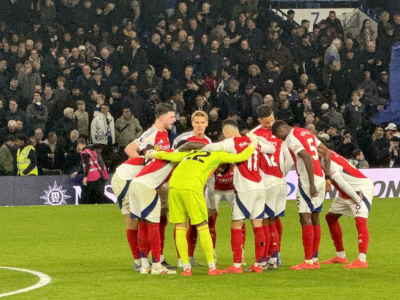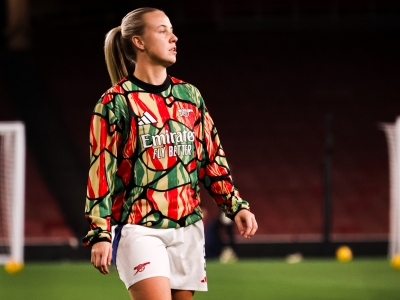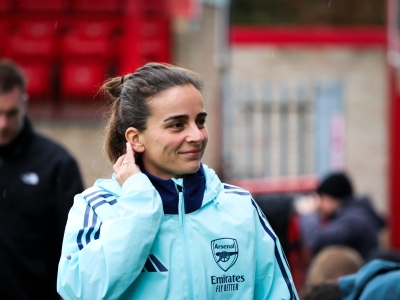(Previous flashbacks for West Ham at home can be found here and here, while yesterday’s edition can be found here.
After West Ham dropped into the second tier in 1978, they would spend three seasons outside of the top tier. The Hammers dished out a 5-0 hammering to Newcastle in late March 1979 and finished fifth in the second tier at the end of 1978/79. West Ham would finish seventh in 1979/80, though the Hammers of course secured the FA Cup that season with a 0-1 defeat of Arsenal, a game which also saw a professional foul from Willie Young on a seventeen year old Paul Allen, while the latter was in on goal.
West Ham would secure promotion back to the top flight in 1980/81 through winning the second tier title, as well as meeting Liverpool in the League Cup Final, drawing 1-1 at Wembley, though losing the replay 1-2 at Villa Park. Arsenal’s first fixture back at the Boleyn Ground on West Ham’s return to the top flight saw a debut for seventeen year old Essex-born childhood West Ham fan, Stewart Robson. Goals from Chris Whyte and a John Hollins penalty gave Arsenal a two-goal lead, while Stuart Pearson pulled one back for the Hammers Arsenal took the points with a 2-1 win.
The following season Arsenal would make it back to back away wins at the Boleyn Ground in the penultimate fixture of the 1982/83 season. Goals from Brian McDermott, a Vladimir Petrovic on his way out of Arsenal at the end of the season and another against West Ham for Chris Whyte gave the Gunners a 3-1 victory. Exactly seven months on, Arsenal visited a West Ham side surprisingly in contention for a title in second position, four points behind Liverpool. The Gunners in stark contrast were languishing in fifteenth position after losing four games out of five, as well as exiting the League Cup after an embarrassing home defeat to Walsall. The Hammers would increase Arsenal’s misery by inflicting a 1-3 defeat, while Chris Whyte would be on target against the Hammers again he would also put the ball into his own net.
Goals also from Trevor Brooking in his final season of playing and Geoff Pike gave the Hammers their first home win over the Gunners for eight years. This defeat would lead to Terry Neill’s sacking as Arsenal manager six days later. Ten months on under Don Howe and Arsenal would find themselves in a very different position, being four points clear at the top after five straight wins. Arsenal’s lead however would be halved after another 1-3 defeat at the Boleyn Ground after Tony Cottee, Paul Goddard and Geoff Pike would be on target for the Hammers, meanwhile Ian Allinson would be on the scoresheet for the Gunners. West Ham’s first three seasons back in the top flight would see top half finishes for the Hammers, however in 1984/85 they would slip to finishing just two points off of relegation in sixteenth place.
It’s fair to say therefore that West Ham’s hopes were not particularly high going into the 1985/86 season, however the Hammers managed a 2-2 draw with Liverpool at Upton Park at the end of August. Also, despite an early season goal spree from Frank McAvennie upon his arrival from St. Mirren, a TV black out and dismally low attendances in the wake of Heysel meant that the Scotsman had to appear on Wogan in order to get recognised in the street. During the blackout, Arsenal’s visit to the Boleyn Ground in early October ended in a 0-0 draw. When Football returned to the screens in early January with the FA Cup, West Ham were the first side to appear live against a Charlton side forced to play their home games at Selhurst Park due to the closure of the Valley in September. West Ham won 1-0 with a goal from Tony Cottee.
West Ham’s title hopes were boosted in early February with a 2-1 win over early pacesetters Man United live on ITV’s ‘The Big Match’. The Hammers would also knock Man United out of the FA Cup with a 2-0 win at Old Trafford. There followed a 4-0 thrashing of Chelsea at Stamford Bridge on Easter Saturday, as well as an 8-1 thumping of Newcastle at Upton Park in late April. Five straight wins over eleven days in late April took the Hammers within four points off the top of the table with a game in hand. West Ham went into the last Saturday with a chance of winning the title, though they achieved a 3-2 win over relegated West Brom a victory for Liverpool at Stamford Bridge denied a championship showdown with Everton two days later, which West Ham lost 1-3 meaning a third placed finish.
That 1985/86 season was West Ham’s highest ever League finish, though would be the peak of the Hammers achievements in the 1980s, managing only bottom half finishes until relegation at the close of the decade. In October 1986 the Hammers managed a 5-3 win over Chelsea at Upton Park, as well as a televised 1-0 win over Everton at the start of November. West Ham also had two former Arsenal players added to their squad in 1986/87, with Stewart Robson leaving Highbury in January after a bust up with new manager George Graham and in March Liam Brady returning from Italy after a seven year spell there following his Highbury exit in 1980.
Brady’s first game against Arsenal came in early April just days after Arsenal secured their first trophy since Liam was a part of the side in 1979, winning the 1986/87 League Cup against Liverpool at Wembley. Brady marked the occasion by scoring after a run from the half way line. In the modern era, former legends scoring against old clubs tend to mark the occasion by not celebrating. Here however, Brady actually gets booked by the referee for over celebrating his goal with the West Ham fans. Two goals for Tony Cottee and a Martin Hayes penalty meant that West Ham inflicted a 1-3 defeat on a Gunners side who had not secured a win in the League since early January.
Twelve months later, Arsenal returned to the Boleyn Ground in the League to take all three points with a 1-0 win secured by a goal from Michael Thomas. By the time of the late eighties, West Ham’s aging side were in rapid decline as shown by Arsenal’s 4-1 hammering of the Hammers at the Boleyn Ground with goals from Michael Thomas, David Rocastle and two for Alan Smith. West Ham however were still capable of pulling off a Cup upset and disposed of League Champions Liverpool in the League Cup that season with a 4-1 win at Upton Park and an excellent opening goal for young prospect Paul Ince.
The Hammers drew Arsenal in the third round of the FA Cup in January 1989, which had been a top verses bottom affair with Arsenal leading the old First Division while the Hammers were anchored to the foot of the table. West Ham raced into a two goal lead in the first half with both strikes from Alan Dickens. Two goals from Paul Merson however drew the Gunners level with the match ending in a 2-2 draw. West Ham however won the replay back at Highbury meaning that the Gunners only had the League left to concentrate on, which was duly delivered on the last game the following May. West Ham however dropped down to the second tier after finishing second from bottom.
While in the second tier, Liam Brady scored a superb goal in the final game of his career ahead of retirement against Wolves in May 1990 and mobbed by Hammers fans invading the pitch. In 1990/91 West Ham were going well in the old Second Division as well as the FA Cup. Their Cup run started with Aldershot Town, covered here on BSB Sport with Richard Keys and Martin Tyler just prior to the network’s merger with Rupert Murdoch’s Sky Television and rebranding as Sky Sports. Also, Arsenal’s David O’Leary on punditry duty. The highlight of West Ham’s 1990/91 FA Cup run had been a 2-1 win over Everton in the Quarter Final, however they were to lose to Brian Clough’s Nottingham Forest in the Semi Final.
West Ham’s return to the top flight in 1991/92 would be disappointing fare for the Hammers, who were rock bottom at the time of Arsenal’s visit to the Boleyn Ground in mid-March. The Gunners left with all three points after two goals from Ian Wright secured a 2-0 win for Arsenal. At the time both Arsenal and West Ham were planning to introduce their unpopular bond schemes and both sets of fans carried out a protest in tandem with hundreds of balloons being released above Upton Park during the game, as well as a pitch invasion in protest by a lone Hammers fan. Unlike Arsenal, the West Ham board actually did cave in to fan pressure and cancelled their loathed Bond scheme as less than a thousand were sold.
The Hammers poor form continued, however one bright spot would be a 1-0 defeat of title chasing Man United at Upton Park, which would be the second of three straight defeats during the title run in which would see the Reds lose pole position to Leeds United and Old Trafford’s long wait for a League title extend to twenty six seasons. For West Ham however it would only delay the inevitable, as three days later relegation would be secured after a 0-1 defeat away at Coventry, meaning that the Hammers would miss out on the inaugural season of the Premiership. West Ham’s spell outside of the top tier lasted just one season, coming back up the following term to secure promotion on goal difference with a 2-0 win over Cambridge on the final Saturday of the season.
Arsenal’s first visit to Upton Park during the Premiership era came in late November 1993, which ended in a 0-0 draw with David Seaman sent off for a professional foul on Trevor Morley. By the time of Arsenal’s next visit to the Boleyn Ground in September 1994, as shown by the Sky Sports build up, the Gunners had made one of their worst ever starts to a season, failing to a win a game since the opening match, over a month prior. Arsenal however got back to winning ways with a 2-0 victory with goals from Tony Adams and Ian Wright. This would be Arsenal’s last visit to Upton Park during the George Graham era
The only visit to the Boleyn Ground during Bruce Rioch’s reign as Arsenal boss came seventeen months later, as Arsenal secured a 1-0 win from a goal scored by future Hammer John Hartson. The first meeting of the Wenger era came in late January 1997, with Ray Parlour giving Arsenal the lead after eight minutes. West Ham equalised with an own goal from Arsenal’s Matthew Rose in his fifth and final appearance for the Gunners before moving to join former coach Stewart Houston at QPR. Four minutes later, Arsenal took all three points with a goal from Ian Wright securing a 2-1 win. In Wenger’s first double season, Arsenal would visit the Boleyn Ground on three separate occasions, firstly after being drawn away to West Ham in the Quarter Final of the League Cup.
Goals from Ian Wright and Marc Overmars gave the Gunners a two goal lead. West Ham pulled one back with a goal for Samassi Abou, however the Gunners progressed to the Semi Final with a 2-1 win. The two sides played out a 0-0 draw in the League at the start of March, though a week later were to meet too in the FA Cup Quarter Final. After a 1-1 draw at Highbury, the replay at Upton Park nine days later saw Dennis Bergkamp sent off for retaliation in the first half, though Nicolas Anelka put the Gunners ahead on the stroke of half time. Former Gunner John Hartson pulled one back with six minutes to go in normal time and the scores remained level at the end of extra time, meaning the tie went to penalties. Arsenal’s stand in keeper, the Austrian twenty year old Alex Manninger, would be the hero as the Gunners progressed 4-3 on penalties.
In 1998/99 under Harry Redknapp, West Ham would secure their second highest ever finish in the top tier through coming fifth. They would however suffer a 0-4 hammering to Arsenal at Upton Park in early February with goals from Dennis Bergkamp, Marc Overmars, Nicolas Anelka and Ray Parlour. After twelve games without defeat at the Boleyn Ground for the Gunners, West Ham would finally bag their first win over Arsenal on their home ground in over a dozen years. Two strikes for Paolo Di Canio gave West Ham a two goal lead and though Davor Suker would pull one back, the Hammers would inflict a 1-2 defeat on Arsenal.
There would be a heated finish to the game however as six minutes from time Patrick Vieira would be sent off for a second bookable offence, followed by a fracas with West Ham’s Neil Ruddock where Vieira appeared to spit at ‘Razor’, while the latter was claiming he could ‘smell garlic’ (which tells you a lot about Ruddock’s mentality). Vieira ended up with a six game suspension and a £45,000 fine, though cited xenophobic provocation received from Ruddock throughout the game. Arsenal however would be back to winning ways again at Upton Park twelve months on with a 2-1 win with goals from Robert Pires pouncing on defensive mistake from Trevor Sinclair and an own goal from Rio Ferdinand, while Stuart Pearce would pull one back for the Hammers.
In Wenger’s second double season, just ahead of Christmas 2001 Freddie Kanoute would give West Ham the lead ten minutes before half-time, however three minutes later east-end born Ashley Cole would equalise for a 1-1 draw. By the time of Arsenal’s next visit to Upton Park in August 2002, the side had been unbeaten in domestic football throughout the whole of that calendar year. The Gunners however went two down to the Hammers, with goals from Joe Cole and Freddie Kanoute. Thierry Henry had pulled one back into the second half, though David Seaman prevented Arsenal from falling further behind by saving a penalty from Freddie Kanoute. Arsenal however prevented defeat with Sylvan Wiltord equalising with two minutes to go, with the final score a 2-2 draw.

